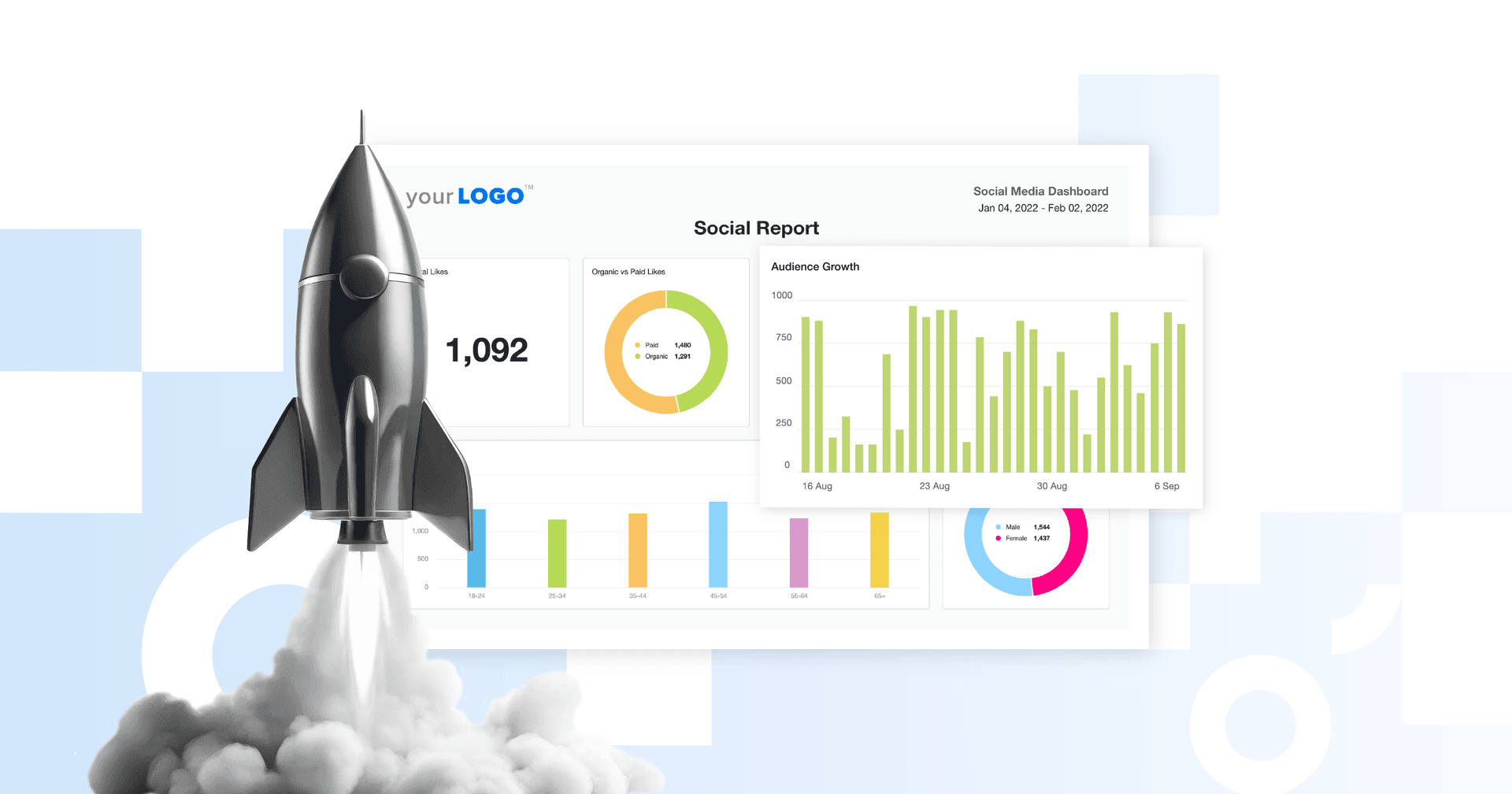Table of Contents
QUICK SUMMARY:
Wondering how to get more clients for your marketing agency? Today’s agencies face the challenge of standing out in a saturated market, where larger players dominate. That's why acquiring new clients involves strategic engagement beyond traditional methods like cold calling. This article provides 12 practical strategies for agencies to get more clients, emphasizing innovative approaches tailored to the current market dynamics.
In today’s competitive market, standing out from the crowd and attracting potential clients can be a daunting task. But don’t worry, we’ve got you covered. In this article, we’ll share actionable tips and strategies to help your agency get more clients and win new business.
Are you a marketing agency looking to get more clients? Not scaling your agency as quickly as you’d like? Do you want to grow your marketing agency but don’t know where to find more clients? How do others get their agency clients?
Things have progressed beyond signing up for the best small business phone system and making cold calls (not that there isn’t a place for this technique).
And as we’ve heard from our customers during the recent agency benchmarks survey, the struggle is real. 37% of agencies list Client Acquisition as the top challenge their agency faces.
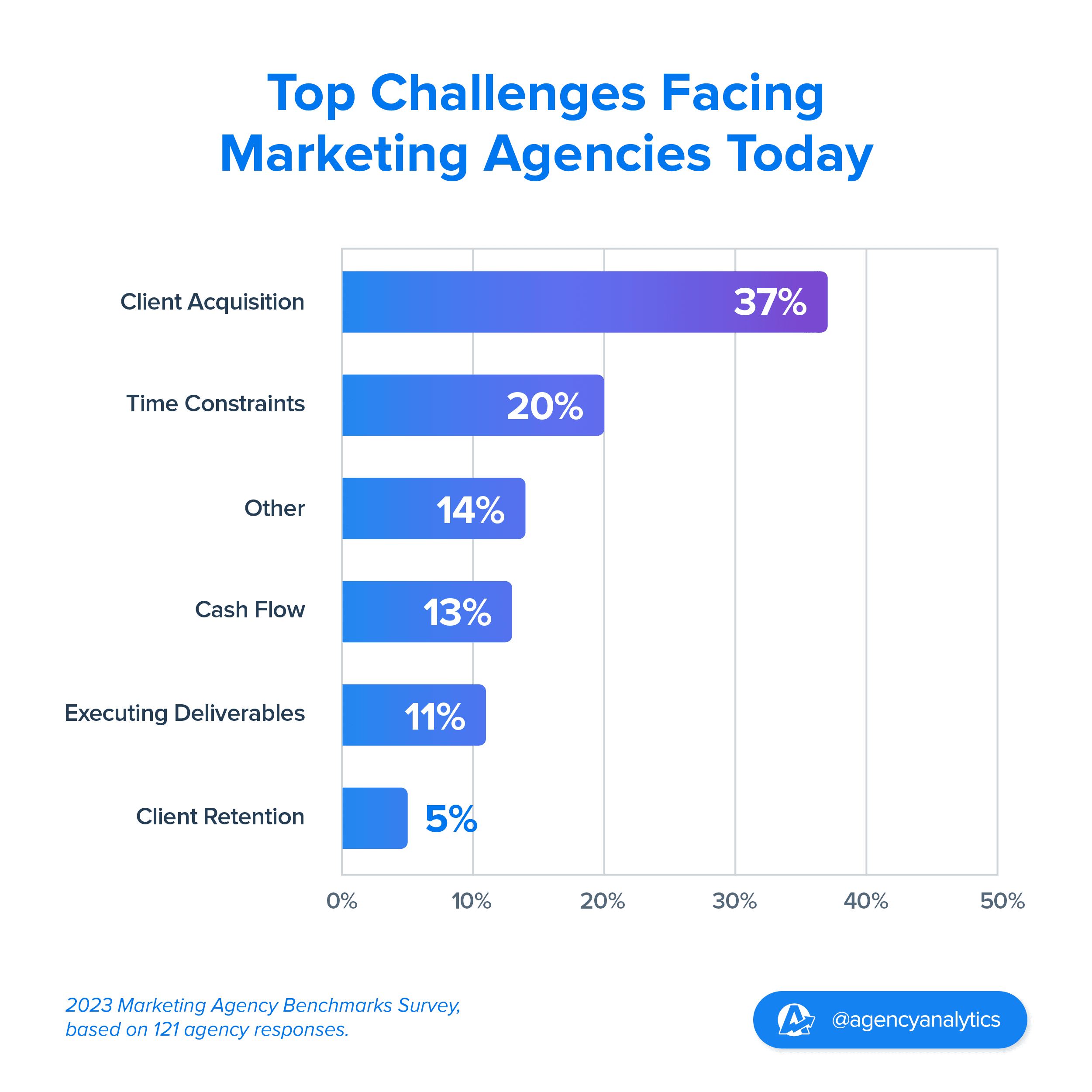
In particular, many of them have told us how the most popular channels have become oversaturated with larger agencies.
The biggest challenge we are facing as an agency is consistently attracting the volume of qualified leads for our own client acquisition that we want.
Larry Weideman, SEO Manager, Magnyfi
Others recalled the challenges they’ve faced attracting new agency clients with content marketing. In fact, we’ve heard terrifying stories from marketing agencies that try to out-publish larger competitors. Needless to say, many end up frustrated with the process and have little to show for their efforts.
Whether you specialize in SEO, social media, PPC, or other digital marketing services, acquiring new clients is essential for your agency’s growth and success. From optimizing your agency’s website to offering free audits and creating compelling content, we’ll explore a variety of tactics that can help your agency stand out and attract more clients. Let’s dive in and learn how to get more agency clients!
In this article, we’ll cover 12 proven strategies that will help you consistently grow your agency. These strategies are not only useful for new agencies but are also used by established agencies. If you want to learn about the best ways to get more clients for your agency, read on!
All too many marketing executives mistakenly believe that landing new agency clients for their agency is relatively easy.
As they see it, they expect their marketing agency to have enough traction on its own to attract new clients. But that’s not always the case. Without an active client acquisition plan, marketing agencies risk stagnating.
The thing is—content marketing, SEO, and PPC are only a few of the channels to find new customers. There are, in fact, many other approaches in order to help you attract your own ideal customers.
In this post, I’ve outlined some of my favorite strategies to get new agency clients. First, let’s start by gaining a broader perspective on the growth challenges that marketing agencies face.
Why Do Digital Marketing Agencies Struggle with Growth?
Notice that I didn’t ask whether marketing agencies face the growth challenges above.
Unfortunately, that is a given. For example, a series of interviews with marketing agency owners by Smart Insights made it clear: marketing agencies struggle with maintaining growth.
Many of the founders we interviewed talked about the growing competition, both from larger digital marketing agencies and freelancers. Some also point to the over-saturation of popular marketing channels.



At the same time, it showed that 79% of marketing agencies felt confident in their ability to close clients. Only 60%, however, said the same about their lead generation efforts.
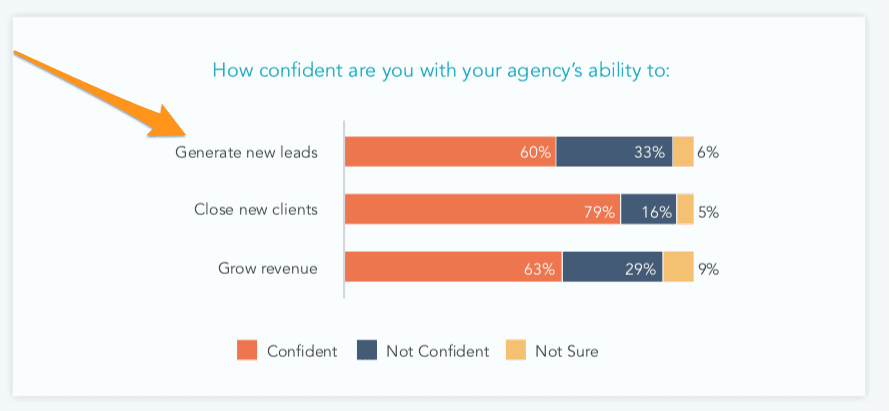
To me, the data above reveals the root of the problem:
The agencies’ inability to reach the target market and engage it with a relevant message. Evaluating and streamlining marketing efforts is key to improving lead generation and client acquisition. By assessing analytics for audience engagement and leveraging content marketing strategies, agencies are better equipped to attract new clients and build relationships.
And if you read the marketing agency case studies, you would also discover why.
So, below are some strategies that I believe will help you overcome this challenge. With them, you’ll be able to reach your target audience without having to compete with larger brands at that.
How to Find Clients for Digital Marketing Agency
Sometimes, the struggle at a marketing agency is not about figuring out what they CAN do to attract new clients, it’s about figuring out what they SHOULD do. Here are some of our best way to get new clients.
Having a well-defined marketing strategy is important to attract new clients effectively.
Strategy #1 Create Niche Content That Serves Your Target Client
Creating niche content that serves your target client is a highly effective strategy for attracting new agency clients. If you are able to solve their basic problems, especially when it comes to digital marketing, they are more likely to turn to you to solve their more complex problems.
This also helps position your agency as an expert in this area, which is always a good thing.
Here are some actionable tips for creating niche content that will resonate with your target audience:
1. Understand your target audience: The first step in creating niche content is to have a deep understanding of your target audience. Who are they? What challenges do they face? What are their pain points? Once you have a clear picture of your ideal client, you can create content that speaks directly to their needs and solves their immediate problems.
2. Identify the topics that matter most to your target audience: To create content that resonates with your target audience, you need to know what topics they care about most. Look for trends and patterns in their behavior, and use this information to inform your content strategy. For inspiration, try asking your current clients what they struggle with in their business, as that can be a wealth of information for possible article topics.
3. Use your expertise to provide value: As an agency, you have a unique set of skills and expertise that can help your target audience solve their problems. For example, you could create a how-to guide, a case study, or a white paper that addresses a common challenge your target audience faces. And don’t be worried that you’re going to write yourself out of business, there is an excellent chance that a potential agency client will turn to you to execute those ideas once they’ve read what you have to say.
4. Optimize your content for search engines: If you’re a digital agency, this should go without saying but is–all too often–overlooked. Creating great content is only half the battle. To attract new clients and squeeze all of the benefits out of SEO that you can, you need to make sure your content is easy to find.
Optimize your content for search engines by using relevant keywords, adjusting your headlines and meta descriptions, and using internal and external links. If your agency serves a particular geographic location, infuse local SEO best practices as well.
5. Share your content on social media: Once you’ve created your niche content, it’s time to share it with the world. Share your content on social media platforms like LinkedIn, Twitter, and Facebook, and use relevant hashtags to reach a wider audience. You can also use paid advertising to promote your content to your target audience.
6. Showcase testimonials and case studies from satisfied clients: Use testimonials and case studies to build trust and attract new clients. Highlighting the success stories of satisfied clients not only demonstrates the value and excellence your agency offers but also encourages referrals and strengthens your reputation.
By following these actionable tips, you create niche content that serves your target client and attracts new agency clients. Remember always to put your audience’s needs first and provide value through your content.
Clients are so inundated with calls and emails from our industry its hard for our clients to know who they can trust. We are working hard on building authority through video testimonials, case studies, content and guest appearances on podcasts.
Lane Rizzardini, Co-Owner, Marion Relationship Marketing
Strategy #2 Host Regular Training Events or Workshops
If you want to help bring your skills and experience to life, webinars and events are great options.
One of the best ways to get new agency clients is by engaging with them when and where they need you the most. When they are early in the buying cycle, prospective customers tend to seek education above anything else.
They want to learn more about their problem and how a potential solution could help them solve it. However, they may not want to discover it by reading content.
For example, a manager of a thriving business who struggles to generate more inquiries online might not have enough digital expertise to understand your ideas.
In fact, they might prefer someone to explain it to them firsthand.
And here lies your opportunity—hosting regular small business networking events to explain the benefits of your services to prospective clients or to help them solve some of the basic problems they are facing.
Some agencies run workshops that introduce prospective clients to solutions they offer or that cover the fundamentals of a particular marketing tactic.
Personally, I doubt that anyone would become a topic expert during any of the above workshops. Then again, that's not the point of running them.
Such events help participants get a good understanding of a particular strategy.
And for you, they also:
Help connect your marketing agency with highly-qualified prospects
Present yourself as subject matter experts
Gently reinforce the complexities of the strategy
Subtly pitch your services
And in today’s digitally connected world, you can host these training events virtually using Zoom or a webinar service provider.
Agency Tip: To get even more out of local, in-person events, partner with a local coworking space or a meetup group. Many such places would have extensive networks of contacts that you could tap into.
Alternatively, if you're focused on marketing within a niche, find events within your niche industry to reach potential agency clients directly. While running your own event gives you more flexibility, you can often reach a larger audience by connecting with an existing event.
Strategy #3: Ask Your Broad Network for Introductions
I admit that this strategy seems almost too obvious.
And yet, I rarely hear of agencies actually using it.
Current and former clients you have a good rapport with, industry connections, and other people you've interacted with can introduce you to companies looking for your services.
And very often, all you need to do is ask.
The problem? I believe many founders do not know how to ask for these introductions. Or, perhaps, they are concerned that asking for introductions will somehow indicate that they are desperate for business.
So, here's a simple approach a friend of mine uses. Whenever he's low on new leads, he reaches out to connections with this simple message.
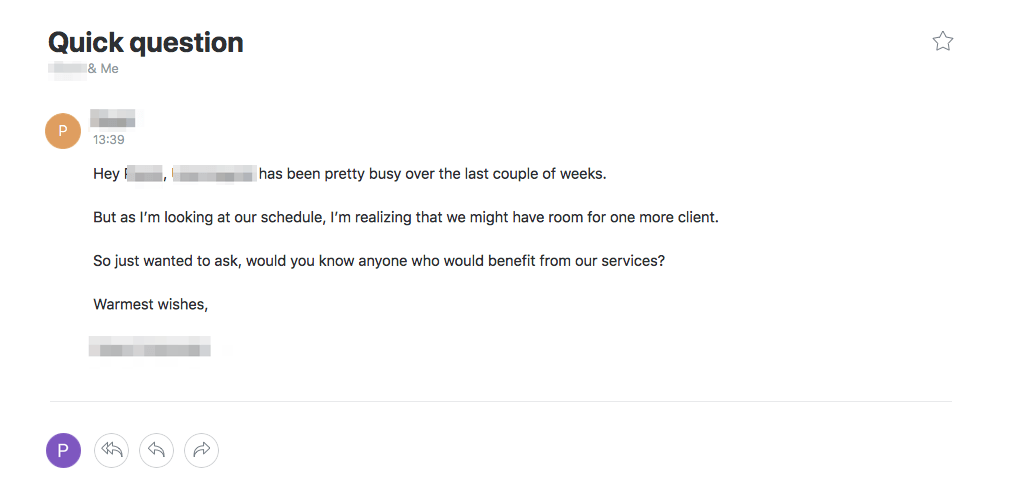
Notice how the message suggests one recommendation only. This way, it doesn't seem as intimidating as asking for many introductions would. Plus, it creates a sense of urgency because the availability is scarce.
Strategy #4: Retarget Website Visitors to a Lead Generation Asset
Instead of finding agency clients, take a look at your current website traffic. Not all website visitors are ready to inquire during their first visit.
Most need to come back more than once to make a buying decision.
And so, if you focus only on increasing conversions but forgo enticing visitors to come back, then you're leaving money on the table.
One way to overcome this is retargeting. Ideally, by positioning relevant information while prospects continue their research.
And I admit, this strategy incorporates many others -- content, lead generation, etc. But by combining those efforts, you increase your chances for new inquiries greatly.
Here's how.
First, map your content to the entire customer's journey. By doing so, you'll understand what information to present, depending on a person's interests.
Next, establish exit points relating to the buying cycle. For example, customers who only read your blog posts are, most likely, at the awareness stage.
Those who reviewed your About page or Service pages could be evaluating your agency.
And you can consider anyone who drops off from the contact page as a potential customer.
Now, the above is just an example. You'll have to analyze your data and establish how this process looks for your agency.
Finally, set up retargeting ads to present those people with relevant content:
Blog posts for people in the awareness stage,
White papers or other lead magnets for the second, and
Case studies or other proof for those already looking to hire an agency.
Strategy #5: Use Strategic Guest Posting
I'm sure you've already heard how effective guest posting can be. Countless success stories confirm how sharing your expertise builds trust, and authority, and grows your business.
But many agencies still shy away from this strategy. And I believe it's because they don't know where to guest post for the biggest exposure.
In fact, a joint report by the Content Marketing Institute and SEMrush, called "The Invisible Key to Content Success" identified this as one of the major content marketing challenges:
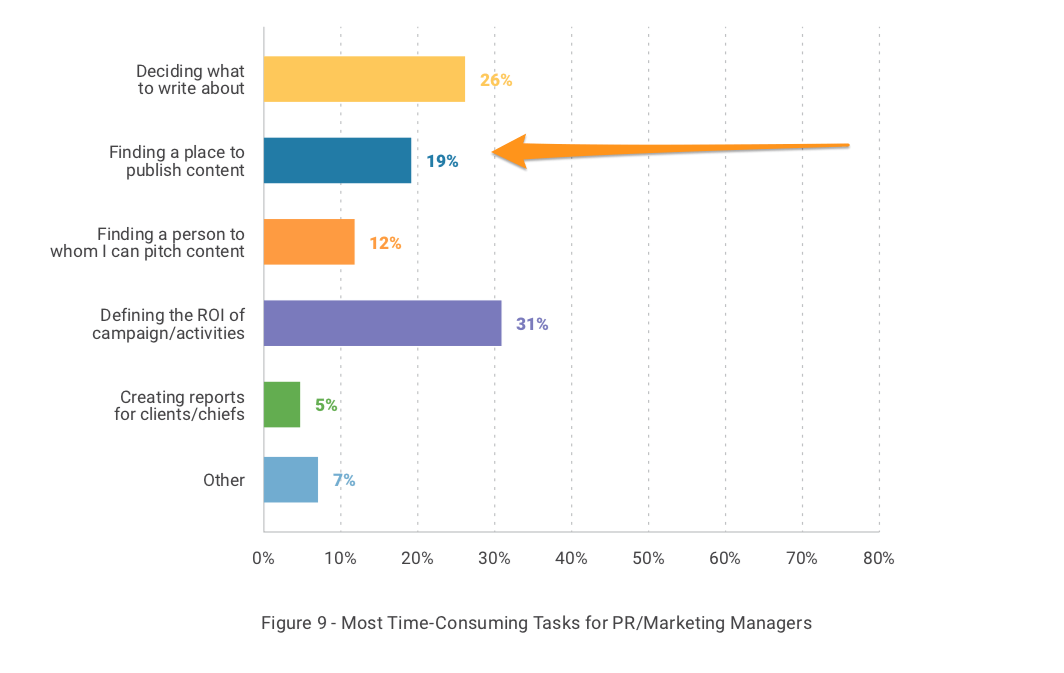
How do you overcome this? My suggestion–by being strategic in your selection.
Let me explain.
When publishing guest posts, you want to achieve two things. You want to gain the greatest possible exposure for your marketing agency. At the same time, you also want to raise its authority level.
When evaluating guest posting opportunities, focus only on sites that promise exposure and authority.
Sites like Social Media Examiner or Moz, for example, immediately deliver on both objectives. Those sites have ginormous readerships. And, being featured there immediately raises the author's industry status.
Another strategy, reach out to your best customers, asking what publications they read often. This way, you can uncover opportunities you could possibly miss otherwise.
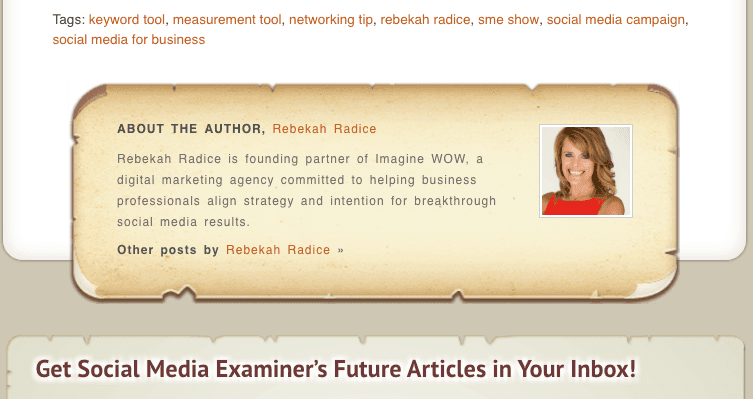
Agency Tip: Feature where you've written on your website too. This adds credibility when a visitor sees that you are a published expert in your field.
Strategy #6: Join Relevant Slack Groups
Slack is slowly becoming a much better alternative to forums and other online communities.
For one, it's where many of us spend a lot of our time. As a remote team, for example, most of our team interactions happen on Slack.
Slack is also incredibly intuitive to use. Not to mention that its UX truly helps bring people together.
But this goes beyond engaging with teammates. Slack communities encourage like-minded people to connect, engage with, and help one another out.
However, a little-known fact is that becoming part of a Slack community could lead to new business opportunities.
That's because, often, members will ask for or refer work to others. Here's one proof from a Slack community a friend of mine frequents.

Here's a list of Business-oriented Slack communities to help you get started.
Can’t find a Slack community that is relevant to your target audience? Create one!
Strategy #7: Create a Mastermind Group on Slack, Facebook, or Other Communities
Joining an existing small business community offers an incredible lead generation opportunity to expand your network and grow.
But building your network can deliver far greater benefits. That's particularly if your community helps solve problems relevant to your marketing agency's specialization.
(That said, building a community requires significantly more work than joining one. But as I'll show you shortly, it's well worth it.)
Think about it. Many local businesses around you feel overwhelmed by marketing.
And some of them will want to gain as much knowledge as possible about it first. Moreover, they might prefer to do it by interacting with the industry professionals, rather than reading content.
And that's why building a mastermind group is a good idea, particularly on Facebook.
For one, it makes engaging with you much simpler. After all, many of your potential clients could be on Facebook, Slack, or Discord already. Using the social network to host your group makes joining and interacting with others effortless. A person can log in to check updates or post comments whenever they check their Facebook feed.
At the same, running it allows you to position yourself as the expert and great source of advice. And that's even better if your potential clients interact with other members instead of you. You are also nurturing prospective clients to become ideal clients at the same time. Feeding them your knowledge compared to them receiving information from various sources will most likely convert these clients that understand your methods. Mind you that there are other social networks like Linkedin to get more clients.
LionZeal is an example of a vibrant Facebook SEO Mastermind group set up by an agency.
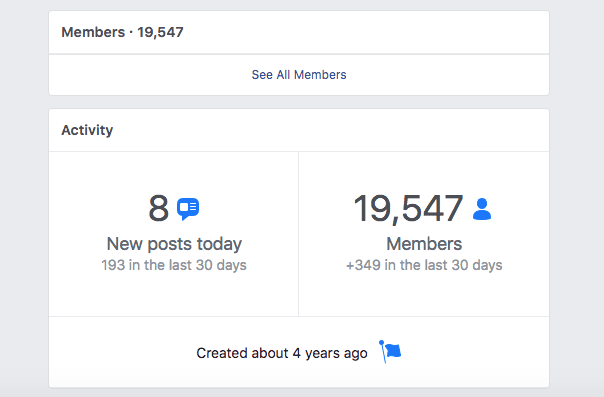
Strategy #8: Develop Strategic Partnerships with Non-Competing Companies
For many business owners, strategic partnerships are an absolute no-go.
They fear how a partnership could affect their client relations.
But building a strategic partnership doesn't mean giving another party access to your clients.
Instead, it allows you to:
Help out agency clients who need complementary services to what your agency provides.
Deliver additional services through a white label connection with another marketing agency.
Take managing Adwords campaigns, for example. To deliver results, a PPC campaign requires more than just keywords and bid management. Content, landing page design, and other factors contribute to higher conversions and lower spending.
However, not every PPC agency can offer those services. At the same time, it shouldn't rely on a client to provide assets necessary for their success.
But those services are in synergy.
A copywriting firm might service clients who need help with growing website traffic. Many PPC agency customers would need a better copy for their landing pages, and so on.
By forming a strategic partnership, both marketing agencies could service their clients better while helping each other grow.
Impress clients and save hours with custom, automated reporting.
Join 7,000+ agencies that create reports in under 30 minutes per client using AgencyAnalytics. Get started for free. No credit card required.
Already have an account?
Log inStrategy #9: Use Agency Marketplaces like Credo
(Full disclaimer, neither AgencyAnalytics nor I am affiliated with Credo. We don't even know those guys. But their service seems like a great opportunity for digital marketing agencies to expand their customer base.)
Many agency owners I know associate marketplaces with low rates and cheap labor. Not a great place to get your ideal agency clients.
And perhaps they are right with some of them.
But recently, a friend told me about a service that seems to combat that negative perception. It's called Credo, and instead of allowing agencies to pitch for jobs, it manually introduces clients to high-quality, vetted, and verified vendors.
As the company states on their website:
"Credo started in 2013 to solve the problem of businesses not knowing which SEO or digital marketing agency to hire."
As I said, I have never had any interactions with Credo. I also don't know anyone who has used the service. But judging by their testimonials and the fact that it's run by an agency veteran, John Doherty, it might be the marketplace to consider to get agency clients.
But there are several other marketplaces that your team can explore, including Upwork, Crowdspring, and Fiverr. Although a lot of these platforms focus on project work, if you do great work, it’s relatively easy to extend those services over a longer period of time.
Strategy #10: Capitalize on Case Studies and Testimonials
Using case studies and testimonials is a powerful way to demonstrate your agency’s expertise and success to potential clients. People love social proof, and that is no different in the B2B space than it is in the B2C space. If potential clients can read how well you handled a business with similar challenges as theirs, they are more likely to trust your agency to help them grow.
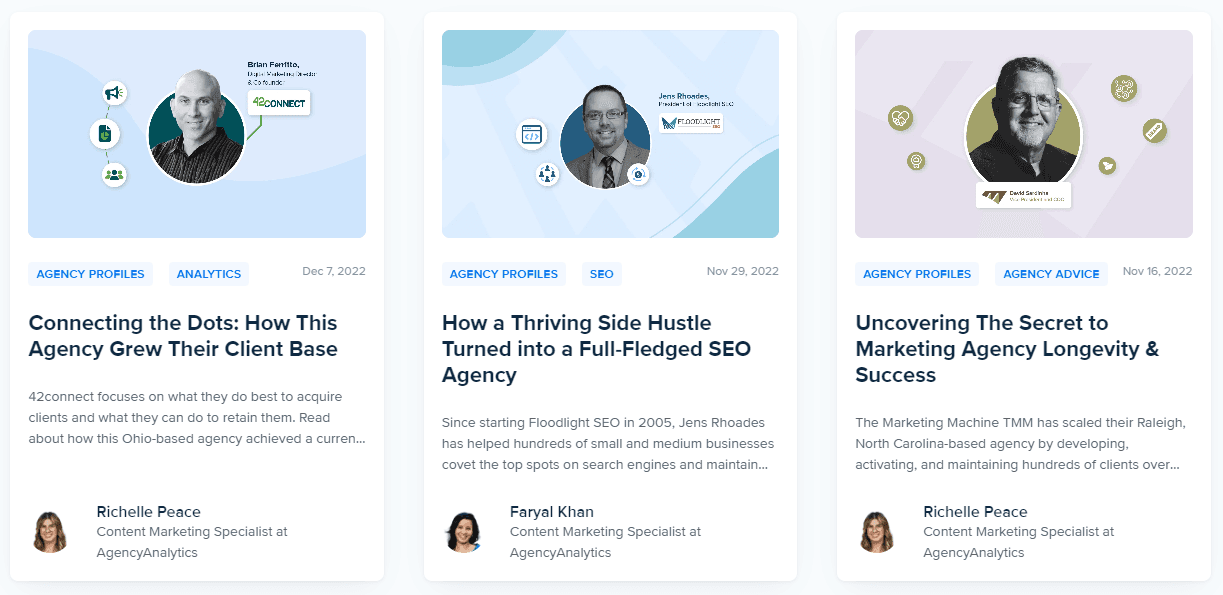
Here are some actionable tips for creating and leveraging case studies and testimonials to attract new agency clients:
1. Identify your success stories: Look for clients that have had significant success working with your agency. Identify the results that your agency helped them achieve and consider which stories would be most compelling to prospective clients.
2. Create a compelling narrative: People are far more likely to remember a story than random facts. Once you’ve identified your success stories, create a narrative that highlights the client’s challenges, your agency’s solution, and the results achieved. Use real numbers and data to showcase the impact of your work, but remember to focus on the overarching story.
3. Get permission from clients: Before publishing a case study or testimonial, make sure you have the client’s permission to use their name and story. You can offer to highlight their business in exchange for their participation.
4. Leverage video content: Video testimonials and case studies can be highly effective in building trust and showcasing your agency’s expertise. Consider producing high-quality video content to highlight your success stories.
5. Share your case studies and testimonials: Once you’ve created your case studies and testimonials, make sure they’re easy to find on your website and shareable on social media (tag the client, and they will likely share it out to their network as well). Consider creating a dedicated section of your website for case studies and sharing them on relevant industry platforms.
6. Incorporate social proof throughout your marketing materials: Use testimonials and case studies throughout your marketing materials to build trust with potential clients. Include quotes and data in your sales presentations or pitch decks, email campaigns, and even retargeting campaigns that feature a highlight reel of client testimonials.
7. Utilize social media marketing: Share your case studies and testimonials through social media marketing to reach a wider audience and attract new clients. Use both organic and paid methods on platforms like LinkedIn, Facebook, and Instagram. Employ social media management tools to improve your online presence and client acquisition.
By following these actionable tips, your agency can use case studies and testimonials to attract new clients and showcase your expertise. Remember to tell a story, always prioritize the needs of your clients, and focus on the results you’ve achieved together.
Strategy #11: Use Paid Ads to Attract New Agency Clients
Paid advertising as a new service for your agency can be an effective strategy for attracting new clients to your marketing agency. Based on our recent survey of marketing agencies, over 70% of clients stay with their chosen marketing agency for 2+ years. Based on the average spend of a client, it’s easy to justify investing some funds into paid ads to attract leads and new clients.
But to make the most of your paid advertising campaigns, you need to approach them with a clear strategy and actionable tactics.
The first step is to identify your target audience. Consider demographics, proximity to your agency office, interests, and behaviors to make sure you're targeting the right people. Then, define your goals and objectives for your paid advertising campaign. Do you want them to fill out a lead form, sign up for a webinar, call your agency, or download a whitepaper? Clear goals will help you measure the success of your campaign and ensure you're getting a good return on investment.
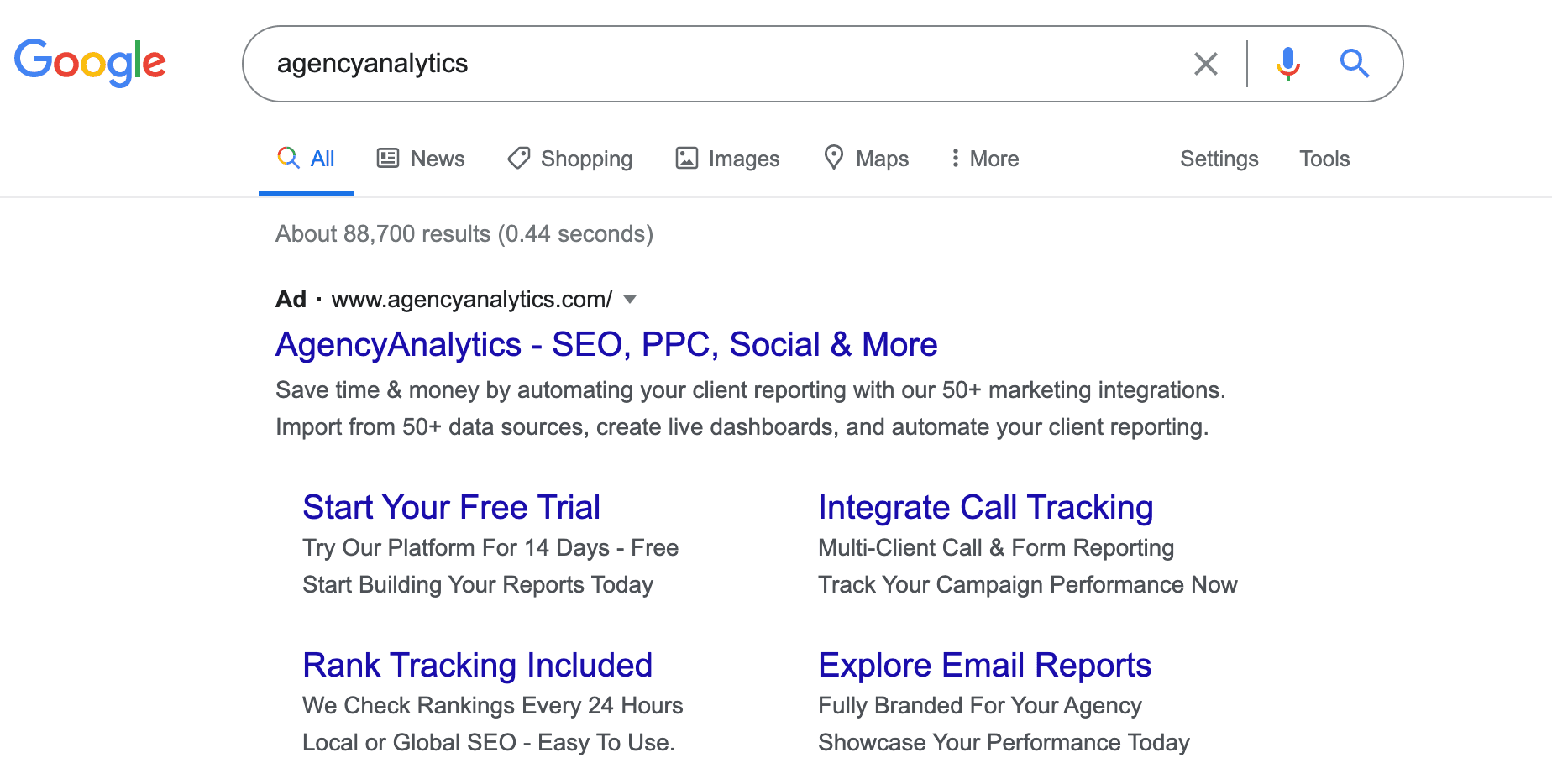
Next, choose the right platform for your campaign. Google Ads and Bing Ads are effective for search engine advertising, while Facebook, LinkedIn, and Twitter are better for social media advertising. Once you've selected the right platform, craft compelling ad copy that highlights the benefits of working with your agency. Use persuasive language to encourage clicks and showcase the problems you can solve for your clients.
Visuals are also an important aspect of paid advertising. Use eye-catching visuals that grab your audience's attention and showcase your agency's branding. Make sure your visuals are high-quality and relevant to your ad copy.
Once your ads are created, it's important to optimize your landing pages to ensure they're designed for conversions. Use clear and compelling headlines, persuasive copy, and a strong call-to-action to encourage visitors to take action. If you’re unsure which headline will convert better, A/B testing is always a viable option.
As you launch your paid advertising campaign, make sure to monitor its performance and adjust your strategy as needed. Continue testing and optimizing your ad copy, visuals, and landing pages for maximum results.
Strategy #12: Drink Your Own Champaign
Do what you do best for your own agency, not just for your clients.
Far too often, agencies forget to utilize their expert capabilities on their own properties. If, for example, you run an SEO agency, but your website is poorly optimized with a Domain Authority of 1, it does not put your agency in the best light.
During my career, the first thing I have always done when evaluating a potential SEO agency is to run an SEO audit on their website. If they are not able to efficiently optimize their own site, there’s no reason for me to believe they could do so for mine. After all, they should already have access to the best SEO agency tools, so why didn't they put them to use on their own property?
Make sure that everything you put in front of your clients, including SEO proposals, your website, business cards, and more, reflect the quality of service that you would provide to any new client.
You may not be able to rank in the #1 position for “SEO Agency,” but that doesn’t mean you should not bother optimizing your own website.
Inspiration and Ideas By Agency Specialty
As a marketing agency, there are a wide variety of strategies you can use to attract new clients and grow your business. From referral marketing to paid advertising and content marketing to case studies and testimonials, there are many approaches that can work for your agency.
While the tips and tactics outlined above can apply to most marketing agencies, you may also be looking for more specialized ideas based on your agency's specific expertise.
Whether you specialize in SEO, PPC, social media, or another area, we've got you covered.
How To Get PPC Clients
Still need more ideas to fuel the creative fire? Beyond the 12 strategies outlined above, here are a few unique ideas for how to get more PPC clients for your marketing agency:
1. Optimize Your Agency's Google My Business Profile
Make sure your agency's Google My Business profile is up-to-date and optimized for your agency’s PPC and Google Ads services. This can help potential clients find your agency when searching for these services in your local area.
2. Host Regular PPC Hot Seat Sessions
Invite local businesses to watch–and participate in–sessions where one local business is put on the “Hot Seat” and gets real-time critique of their PPC campaigns. In these sessions, you can offer personalized advice and recommendations to businesses that are struggling with their PPC campaigns. Not only will this demonstrate your agency's expertise to the person in the hot seat, but it will also build trust and credibility with anyone else who is watching–all of whom could be potential clients.
3. Feature Your PPC Reporting Capabilities
Clients love transparency, especially when it comes to working with a marketing agency. Examples of what their PPC reports you know they’ll love can be a powerful way to attract new PPC clients. By showcasing your agency's ability to provide detailed and actionable PPC reports, you can establish credibility and differentiate your agency from competitors.
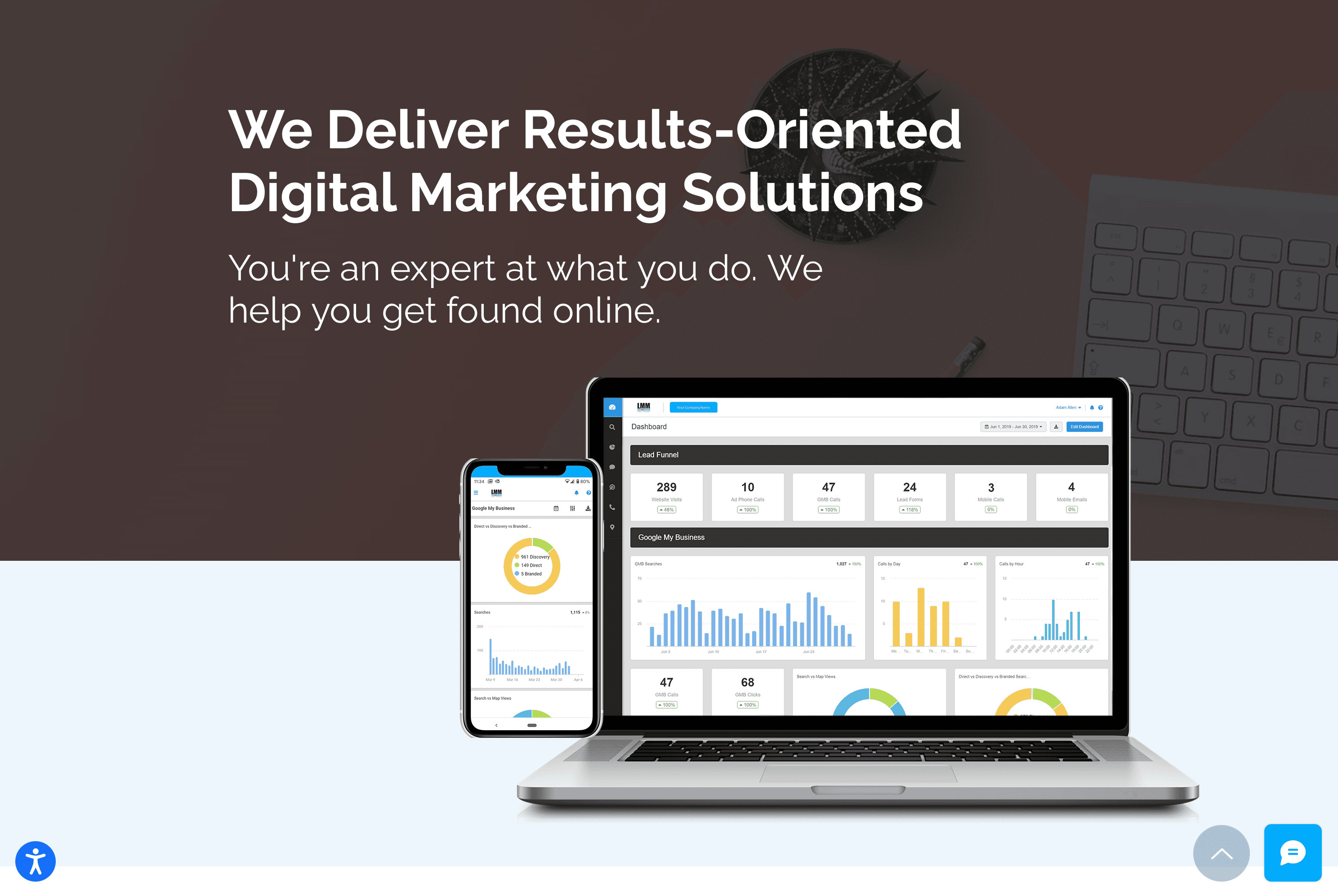
In this example, LeaseMyMarketing features screenshots of their AgencyAnalytics reports as part of their new client acquisition strategy. Want to see how they can help you get more clients, sign up for a 14-day free trial.
How To Get SEO Clients
Here are a few unique ideas for how to get more SEO clients for your marketing agency:
1. Offer a Free SEO Audit
A client may not even realize what is holding them back from obtaining better SERP results. An SEO Audit provides valuable insights into the client's current SEO performance, creates an excellent lead gen pipeline, and gives you the opportunity to demonstrate your agency’s expertise.
2. Attend Industry-specific Trade Shows
If your agency focuses on a particular niche, such as HVAC or Fashion, attending trade shows and conferences related to those industries helps you connect with potential clients and stay up-to-date with the latest industry trends. Use these events to network, learn, and promote your agency.
3. Create a Sample SEO Report
Include key metrics such as keyword rankings, organic traffic (if they’ll grant access to Google Analytics or Google Search Console), backlinks, and the results of their SEO audit in your sample report. Emphasize how your agency's experience and expertise help clients achieve their SEO goals and improve their online visibility.
4. Participate in Local Business Accelerator Programs
These local-focused programs provide access to resources, mentorship, and networking opportunities and can be a powerful way for marketing agencies to attract new SEO clients. Not only will your agency gain local exposure, but your team will also learn from other successful entrepreneurs, which better positions your agency for growth.
How To Get Social Media Clients
Here are a few unique ideas for how to get more social media clients for your marketing agency:
1. Offer Social Media Reference Guides
Providing easy-to-access reference guides, either online or printed, and distributed to local businesses. For example, an infographic-style printout on the best social media posting times would be helpful reference material for any business. By providing valuable information and insights on social media best practices, you can establish your agency as an expert in the field and attract potential clients who are interested in learning more.
2. Provide a Social Media Audit
Similar to the SEO audit mentioned in the section above, offering a free social media audit to potential clients is a great way to dig into the client's current social media performance. This gives your team a very unique opportunity to showcase areas of potential improvement and highlight your agency's expertise in the field.
3. Create a Social Media Contest
Host a social media contest that encourages user-generated content related to your agency's brand or services. This helps increase brand awareness, engage with potential clients, and generate leads for your agency's social media services.
In Summary: What To Do Next To Get More Agency Clients?
It’s one thing to find more clients, but the other important part of the lead generation process is what you can do to convert new leads into paying clients.
And it's a fair concern. The strategies I outlined above would help connect with potential clients for your agency.
But you still need to convince them to become clients.
And my recommendation is to use data to present them with the biggest wins of working with you.
Let me explain this further.
When companies reach out to you, it's not because they want to have a particular desire to work with a marketing agency. They face challenges they believe your agency can help them overcome.
And most likely, they'll choose an agency that shows how well they understand those concerns.
So, here's a simple trick you can do to make it happen.
Research the new client's industry and market before the sales call or send a well-crafted SEO proposal using a proposal template as the starting point.
Next, collect various data illustrating the situation now. For example, research what estimated traffic their domain might receive. Or the most popular keywords their competitors use (including those your new client doesn't target), the cost of acquiring more traffic, and so on.
Then, create a marketing dashboard showing sample results companies receive with the service you provide.
Read More: 16 Marketing Dashboards To Help Your Marketing Agency Scale
Here are some sample dashboards we created with AgencyAnalytics for your inspiration:
The PPC dashboard:
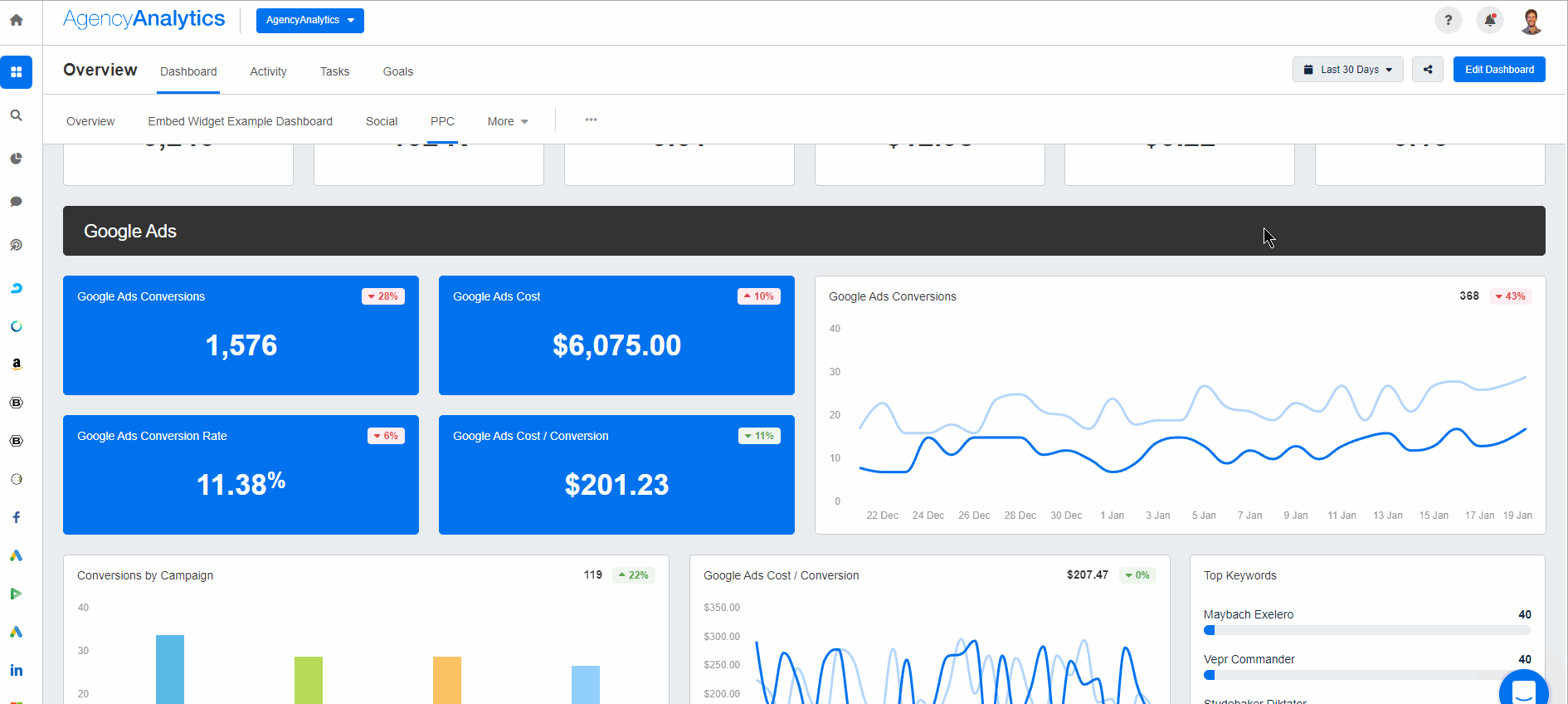
Create your own PPC dashboard in minutes. Try it free for 14 days.
SEO Conversions Dashboard:
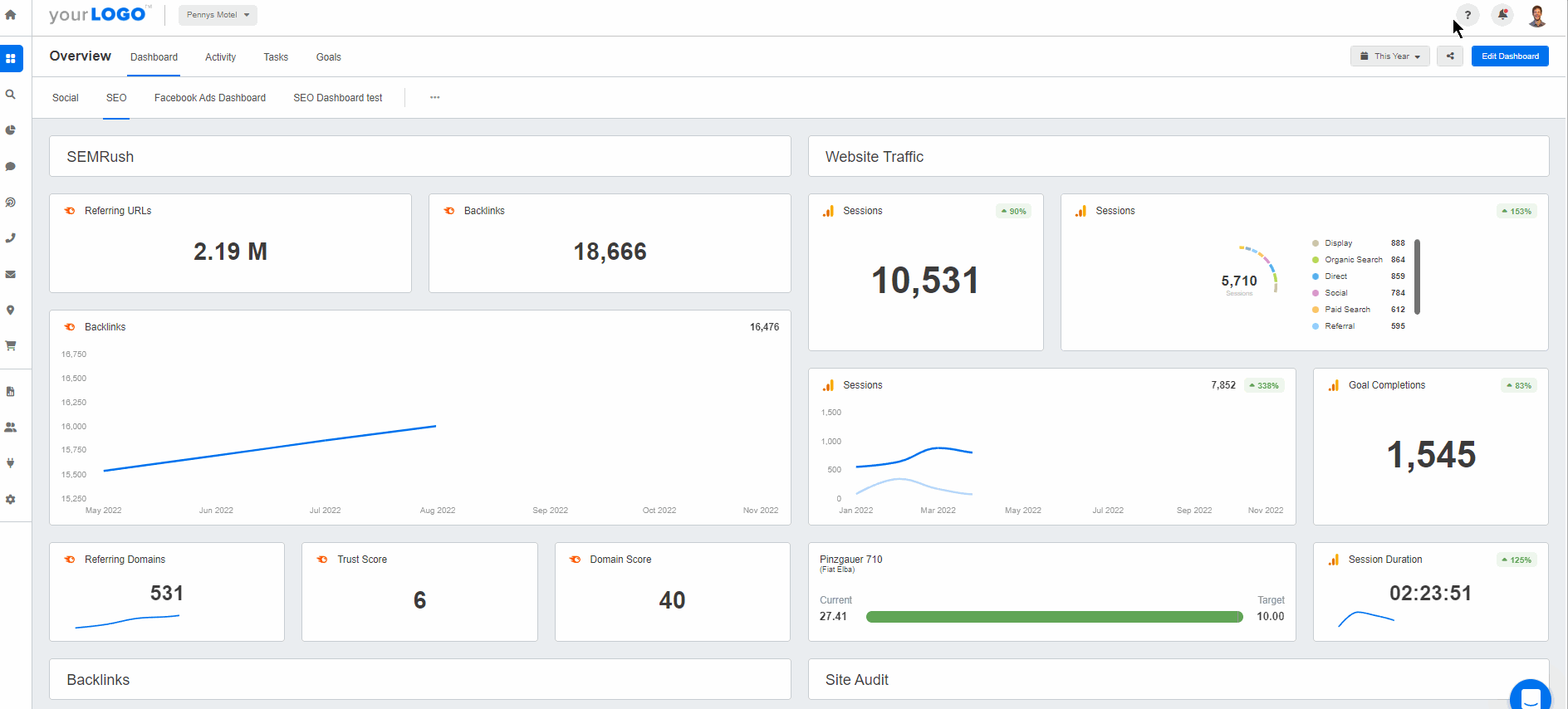
Set up an SEO Dashboard in minutes using our template and impress your clients with a wealth of visual data.
As the last step, merge those results with the data from your initial research. Then, use the results to illustrate the ROI a new client could expect from working with you.
For example, when pitching SEO services, show how growing the number of ranking keywords will affect conversions and revenue.
Calculate the difference between attracting a certain number of visitors to a much bigger one. Using the average conversion rates for SERPs positions combined with the client's avg. sales amount, work out the actual earnings increasing visibility would deliver.
For PPC, discuss the effect of improving campaigns and reducing spending would have on their sales growth and so on.
By presenting the data in context and outlining the ROI using visual cues, you make it not only more relevant but also easier to comprehend. Providing all the information they need will simplify their choice about whom to hire–and, of course, that should be your agency.

Written by
Joe is the co-founder and CEO of AgencyAnalytics, a marketing reporting platform used by more than 7,000 agencies. With experience creating multiple businesses, he thrives on tackling the challenges of sustainable growth and innovation.
Read more posts by Joe KindnessSee how 7,000+ marketing agencies help clients win
Free 14-day trial. No credit card required.






